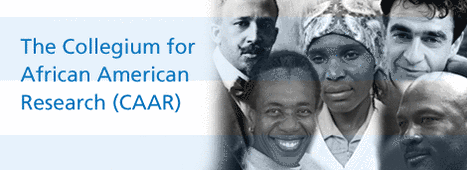The black states of desire project – a view from Paris and the world
Open to scholars from all disciplines and actors from various backgrounds, the conference "Black States of Desire – Dispossession, Circulation, Transformation" intends to look into the passage from knowledge production to social transformation. This theme arose in the aftermath of the violent rioting that broke out in the suburbs of Paris in November 2005. At that time the response to the event from many French academics was rather self-conscious except when they were, more often than not, political or cultural activists and black themselves.
Beyond the local French situation, such a bemusement raises the question of the raison d’être of Black Studies. How do they reflect this world? What do they actually change in the way the world is perceived and lived?
Against what Frantz Fanon called “the forces of denial”, which strengthen social inequality, urban segregation, and inscribe racism and xenophobia deeply in the social body and in individual and collective practices, this conference aims at gathering together scholars and socio-political leaders, intellectuals and artists who, thanks to their work and personal experiences, make racism and xenophobia easier to understand and thus easier to fight against. It invites them to partake in the project of a society where the ethical and political value of diversity will be acknowledged.
During this conference, we shall try and conciliate a socio-economic perspective and a cultural approach. While the cultural perspective thrived in the US and in many European countries in the form of post-colonial, gender and sexuality studies, and identity studies in general, it remains discreet in France. This fact is evidence of the peculiar, complex relation that the nation maintains with its past, namely with slavery and the colonial period. It is also evidence of the French ethos of identity through which identity is often reduced to citizenship. In this light, it comes as no surprise that Blacks of/in France should be perceived first and foremost through the prism of social inequality and often at the expense of the identity and cultural dimensions. The worldwide input that the conference may bring in will hopefully enrich this experience and complexify the way it is seen and understood. On a larger scale, and because African American, Diasporic and Black Studies are transnational and facilitate a transdisciplinary outlook, they are also meant to reflect the new political space of a heterogeneous yet unified European context which has to be acknowledged for what it is and has always been – multicultural, multi-ethnic, and diverse as far as gender and sexualities are concerned and not solely Christian or white.
Conversely, this cultural and identity-focused perspective may conceal the reality of a global black experience, characterized by violence, precarious health, and poverty. The contemporary notions of nomadism and cosmopolitanism lead to a simplification which artificially flattens the socio-economic disparities and diversity of the black condition, thus delaying the advent of any significant change. As the black world made clear in its fights, and in its regeneration of knowledges and epistemology, if being black is a condition of existence which determines one’s interaction with reality and others, one may usefully be careful not to be excessively idealist. Instead, it seems wiser and more timely to concentrate on the concrete possibilities of action and transformation available for the subject. This is why the conference will consider both individual transformation and collective reform, while at the same time focusing on the terms of the mediation and circulation between black knowledges and social transformation.
Social transformation is also supported by the arts and literature, whose representatives sometimes free themselves from the political order and from boundaries more easily than social leaders do; the conference will thus make way for the arts and literature by making easier the circulation between spaces of academic conversation and spaces devoted to cultural events. This circulation aims at materializing what brings together scientists, social and political leaders, intellectuals and artists, besides their common fight against racism and inequalities: they all must ask themselves how their position and action can be perceived and understood, since their durability and efficiency also depend on interpretation and transmission. The reception and interpretation of the artistic work epitomises these issues, which are also at stake in social reform. Literature and the arts are essential to the mediation of African, African-American, diasporic and Caribbean experiences. They are also the special vehicle of desire, here considered both in its philosophical and political acceptation. If desire, when connected to consciousness, is that by which the humanity of the subject is restored, it also constantly redefines space, because of the reactions it triggers and the identifications it hinges on. Social reform, which cannot ignore the actual compartmentalization of space – be it geographic and urban, institutional and political, economic and social, or scientific and academic – may usefully draw its inspiration from the fluidity of desire that art and literature convey.
This is the teaching, among others, of Audre Lorde and James Baldwin, under the aegis of which the conference is placed. They both conceive desire as a flux, where the origin of the self is constantly renewed. Meanwhile it helps the subject to be freed from cultural determinations, especially time and space, which are a priori posited as the matrix and yardstick of the subject’s identities. In both Lorde and Baldwin, desire and its cluster of shifting identifications and emotions refashion self-consciousness in such a continuous way that being black remains a process and not a development arrested on idealizations.
It is this process, the process both imaginative and material of being black, that the conference hopes to nurture.

